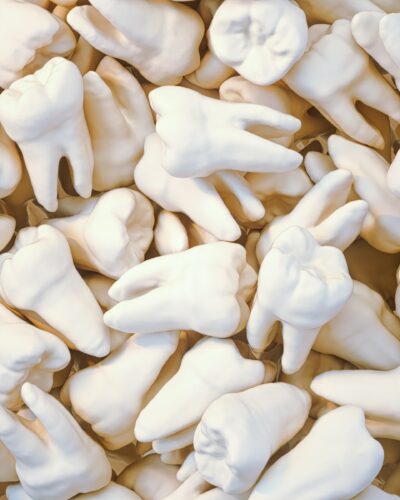When you are told you have a cavity, you likely assume that you will need a dental filling. It’s true that fillings are the most common restorative dentistry treatment for tooth decay. But there are other types of dental work that may be appropriate, especially if you have more extensive decay.
At Dental Care of Lombard, Dr. Julie Glud performs a full range of restorative services. She always recommends the most conservative dental work possible, working hard to save compromised teeth and prevent additional damage. Further, her meticulous techniques and state-of-the-art materials will ensure that your restorations look as realistic as possible.
Contact Dental Care of Lombard to learn more about our treatments or to schedule a restorative consultation.
Cavities: An Overview
Cavities, also called dental caries, occur when oral bacteria build up into a sticky film called plaque and then hard tartar. Plaque and tartar keep bacteria directly in contact with your teeth, meaning that they can quickly erode the hard outer layer of tooth enamel.
Root cavities can also form. Older adults are particularly susceptible to this type of decay since they often experience gum recession that leaves their tooth roots exposed. Root cavities are similar to typical caries. However, instead of enamel, bacteria erode cementum, the softer tissue that protects tooth roots.
Dental caries are incredibly common. Almost 90% of adults aged 20 to 64 have had at least one cavity.
Fillings
As mentioned above, fillings are the most common treatment for tooth decay. While placing a filling, Dr. Glud will remove all damaged tissue, which will eliminate decay and protect your other teeth. Then she will fill the cavity with composite resin. This material offers several advantages, the most noticeable being that it will not affect the color of your smile. And, while older metal fillings contain about 50% mercury, composite fillings are mercury-free.
Crowns
If a cavity grows particularly large, it could damage the overall dental structure. In these instances, a filling would not be enough to save your tooth and, in fact, could weaken it beyond repair. To save your tooth, Dr. Glud may recommend a dental crown. This type of tooth-shaped restoration completely covers a damaged tooth to restore its look and functionality.
Root Canal Therapy
As cavities grow larger, bacteria can also move into the root canals, which house the tooth roots. When this happens, you will likely require root canal therapy. Dr. Glud will clean out your tooth and root canals, filling them with gutta percha, a soft rubber-like substance. Then she will top your tooth with a dental crown.
Root canals have a reputation as the most unpleasant type of dental work. But today’s treatment involves minimal discomfort with short-lived post-procedural sensitivity.
Extraction
When you develop a cavity, you may worry that you will lose the tooth. But extraction is rarely needed and is recommended only as a last resort, usually if there is a risk that bacteria will move into your jawbone. Dr. Glud performs a very gentle procedure and offers sedation, if desired.
Contact us to Learn More about Our Restorative Dental Work
If you have been diagnosed with a cavity or if you are experiencing the symptoms of tooth decay, contact us today to schedule your dental work.
You can reach us via our website or call us at 630-629-5700.

